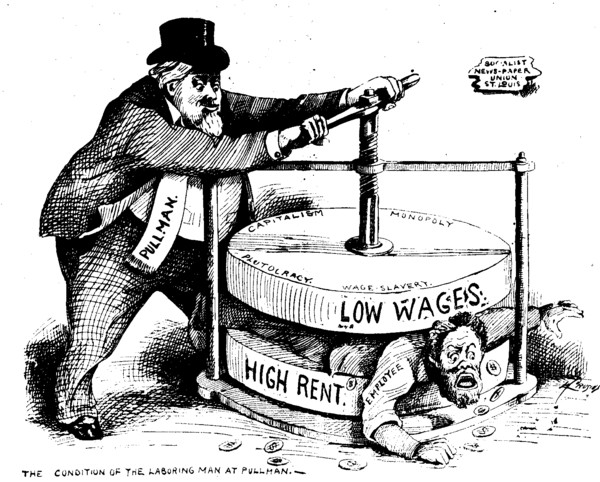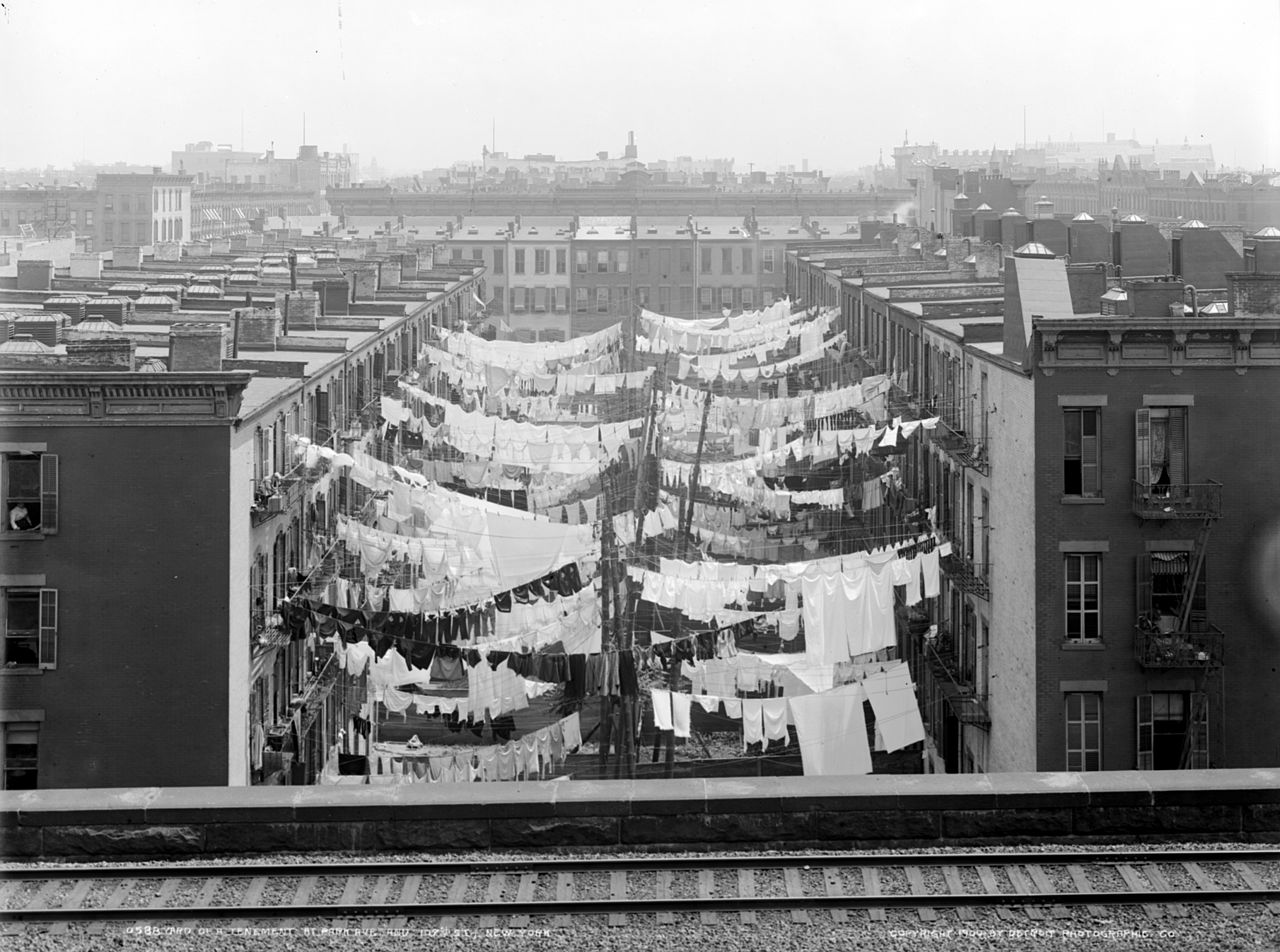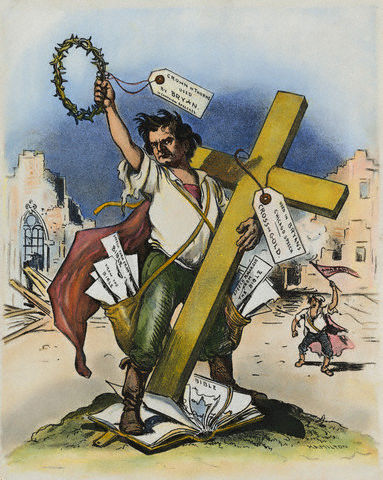Unit 6 Overview: The Industrial Revolution (1865-1898)
5 min read•january 13, 2023
E
Eric Leiden
AP US History 🇺🇸
454 resourcesSee Units
Overview of Period 6 (1865-1898)
Summary of Events
TRAINS, Trains, and more trains!!!! During this period, American Industry and the locomotive are the catalysts for incredible economic growth. In addition, the oil, steel and electrical industries explode in importance. Political greed runs rampant, the urbanization of America becomes obvious, and society explodes with immigrants looking for an opportunity in the Gilded Age. Progressives encourage government resources to improve the economy, society, and political environment.
Growing Industries💰
The economy features unparalleled growth as entrepreneurs like Andrew Carnegie (steel), J. D. Rockefeller (oil), and Westinghouse (electricity) improve upon efficiency and mass production. The acronym ROSE will serve you well for this chapter...Railroads, Oil, Steel, and Electricity. The robber barons or captains of industry reap the benefits of immigration and a surplus in labor to pay low wages in difficult working conditions. The result is the growth of the labor movement.
The Unions
Terrance Powderly creates the Knights of Labor, an unskilled labor union designed to bring about better wages and better conditions. Distrust following the Haymarket Riot leads to the downfall of the Knights of Labor. The American Federation of Labor, founded by Samuel Gompers, fares much better. The AFL was a skilled labor union and thus carried a bit more leverage into the negotiating room and was more effective in improving conditions for its members.
The Strikes
Labor unions utilized the strike as leverage to combat the poor conditions. The Great Railroad Strike of 1877, the Homestead and Pullman strike illustrates government siding with big business during the Gilded Age. Unfortunately, the early strikes met stiff resistance as the idea of Social Darwinism guided many politicians and businessmen.

Disenfranchisement and Segregation
Black reformers such as W.E.B. Dubois and Booker T. Washington advocated for minority rights in society and the economy. Unfortunately, little progress is made due to the landmark court decision of Plessy vs. Ferguson allowing for separate but equal. The KKK terrorize Black businessmen and voters. Literacy tests and poll taxes further prevent political progress from being made at the polls.
Immigration
New immigrants begin to arrive from southern and eastern Europe making Chicago, New York, and Philadelphia their new homes. New immigrants settle in communities of familiar people creating areas such as Little Italy and Chinatown. The government restricts Chinese immigration through the Chinese Exclusion Act of 1882. Ultimately, immigrant families overcrowd cities and live in packed tenement houses with little sanitation or hygiene.

Social Reform
Reformers such as Jane Addams create settlement houses such as Hull House to aid struggling immigrants. Social Gospel advocates preach the “what would Jesus do” mentality to social reform encouraging people with means to attack urban problems. Temperance and Education reform attempt to bring social reform by eliminating drunkenness and encouraging student growth.
Political Corruption
Political bosses such as Boss Tweed of Tammany Hall manipulate voters to increase their own fortunes. Although appearing to provide services to its community, machine politicians often grew rich off of graft and bribery. Political patronage is commonplace and the Pendleton Act attempts to lessen patronage.
Agricultural Issues 🥬
Farmers face issues of low prices for their crops combined with high costs of production. The Grange develops into Farmers Alliances working to curb the power of big businesses. The Interstate Commerce Act attempts to address farmer complaints, however it fails to solve the problems in agriculture. Farmers support the populist party and put forward a revolutionary plan under the Ocala platform. Although the Populists lose the election, their legacy is seen in the Progressive achievements of the early 20th century.
The Economy 🤑
The leading issue of the time was the money supply. Farmers advocated for free-silver to increase the money in circulation resulting in inflationary policy. Debates over tariffs were intense as farmers tended to support low tariffs in contrast to Industry’s call for higher protective tariffs. Discontent elevates following the depression of 1893 placing tariff and currency reform as the most important issues in the election of 1896.
The Election of 1896
The young Democratic candidate, William Jennings Bryan, is supported by Democrats and Populists. Clinging to a pro-silver policy, Bryan delivers his Cross of Gold speech electrifying the crowd in support of the inflationary policy. Veteran republican candidate, William McKinley, wins the election and coincidentally the discovery of gold in Alaska causes inflation. Farmers and Businesses took advantage of the rising economy and American soon became the most industrialized nation in the world.

The Arts 🎨
Artists such as Mark Twain and Stephen Crane provide intimate portraits of society in their works depicting the life and times of the late 1800s. Architecture by Frank Lloyd Wright and Music by Scott Joplin provides brilliant escapes from the harsh realities of life. Boxing, baseball and football provide local and national heroes and society an opportunity to escape from the assembly line and root on their favorite athletes.
Main Events and Dates
1865: End of Civil War
1877: End of Reconstruction and Great Railroad Strike
1882 Chinese Exclusion Act
1886: Haymarket Riot
1890: Sherman Anti-Trust Act
1892: Homestead Strike
1893: Panic of 1893
1896: Pullman Strike, Plessy vs. Ferguson, Election of 1896
Major Themes
- Technology and mass production lead to incredible business growth and the demand for more resources of production.
- Internal and external migrations encourage phenomenal economic, social and political change.
- Art, literature, and entertainment provide a pleasant distraction from the ills of the Gilded Age.
- The progressive movement attempts to combat the negative impacts of urbanization and Industrialization.
- Progressive reformers urge government resources to provide workplace equality, social opportunity, and temperance legislation.
- Political disputes emerge over corruption, currency debates, and women’s suffrage.
We suggest making sure to create a study plan and set up your study space with a good environment. Make sure to have a good grasp on the key timeline and know your historical figures! To help with your productivity, especially during the last few days before the exam, you should use a pomodoro study timer to break up your sessions into intervals and make time for breaks. It is also hugely beneficial to study with friends so that you can motivate one another and crush the APUSH exam together! 🙌🏾
Browse Study Guides By Unit
🌽Unit 1 – Interactions North America, 1491-1607
🦃Unit 2 – Colonial Society, 1607-1754
🔫Unit 3 – Conflict & American Independence, 1754-1800
🐎Unit 4 – American Expansion, 1800-1848
💣Unit 5 – Civil War & Reconstruction, 1848-1877
🚂Unit 6 – Industrialization & the Gilded Age, 1865-1898
🌎Unit 7 – Conflict in the Early 20th Century, 1890-1945
🥶Unit 8 – The Postwar Period & Cold War, 1945-1980
📲Unit 9 – Entering Into the 21st Century, 1980-Present
🚀Thematic Guides
🧐Multiple Choice Questions (MCQ)
📋Short Answer Questions (SAQ)
📝Long Essay Questions (LEQ)
📑Document Based Questions (DBQ)
📆Big Reviews: Finals & Exam Prep
✍️Exam Skills (MC, SAQ, LEQ, DBQ)

Fiveable
Resources
© 2023 Fiveable Inc. All rights reserved.